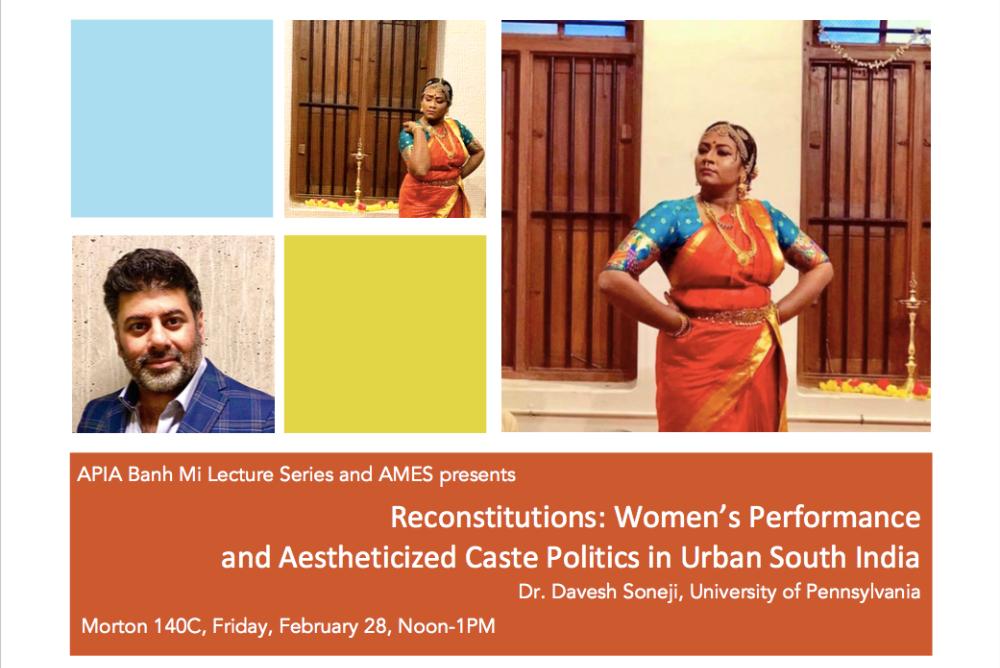Charles Center Events
[PAST EVENT] Reconstitutions: Women’s Performance and Aestheticized Caste Politics in Urban South India
Location
Boswell Hall (formerly Morton Hall), 140C100 Ukrop Way
Williamsburg, VA 23185Map this location
Access & Features
- Free food
- Open to the public

Abstract: By the mid-nineteenth century, performances by Tamil and Telugu-speaking courtesans had come under public surveillance and critique in the Madras Presidency. Over the period of a century, a number of strategic, state-endorsed political and legal interventions culminated in the Madras Devadasi (Prevention of Dedication) Act of 1947 that outlawed dancing in public by women who were universally glossed by the term “devadasi” – a term constructed by reformers as a pan-Indian and transhistorical category. Simultaneously, these women’s performance practices were appropriated by “respectable” urban, upper-caste women, as part of a project of cultural nationalism that resulted in the development of what is globally understood as “Indian classical dance” today. In this talk, I focus on how discursive performance, political performance, historical performance, and aesthetic performance converge in the staging of a “devadasi” self in our times, through the very recent work of Nrithya Pillai of Chennai, a performer from within the community. Nrithya works and speaks from the very epicenter of Brahminic neoliberalism in modern India. In cities like Chennai, ongoing acts of appropriation continue to render women from this community invisible and mute through a caste-bound somatic mimesis, and most importantly and ironically, through the performance of dance itself. Nrithya’s “staging of self” through discourse and performance breaks the barriers of complicity with other twentieth and twenty-first century representations of devadasis and forces us to re-think the deep entanglement of caste, issues of gender justice, and aesthetics in urban India today.
Contact
[[fjtang, Francis Tanglao Aguas]]
